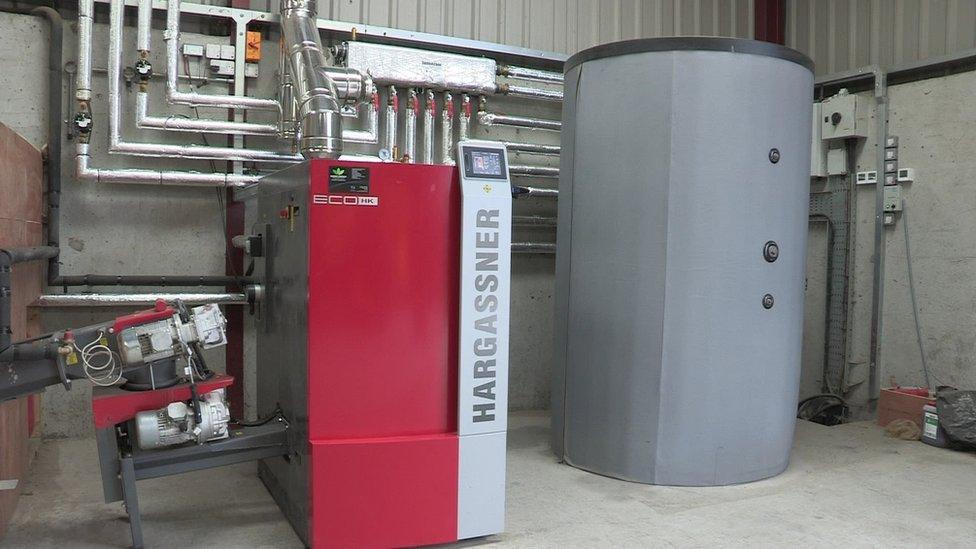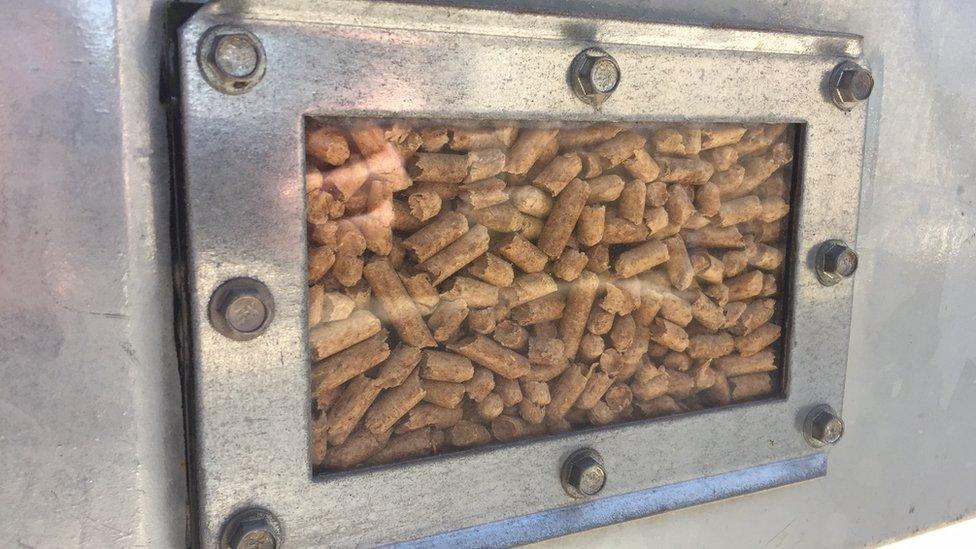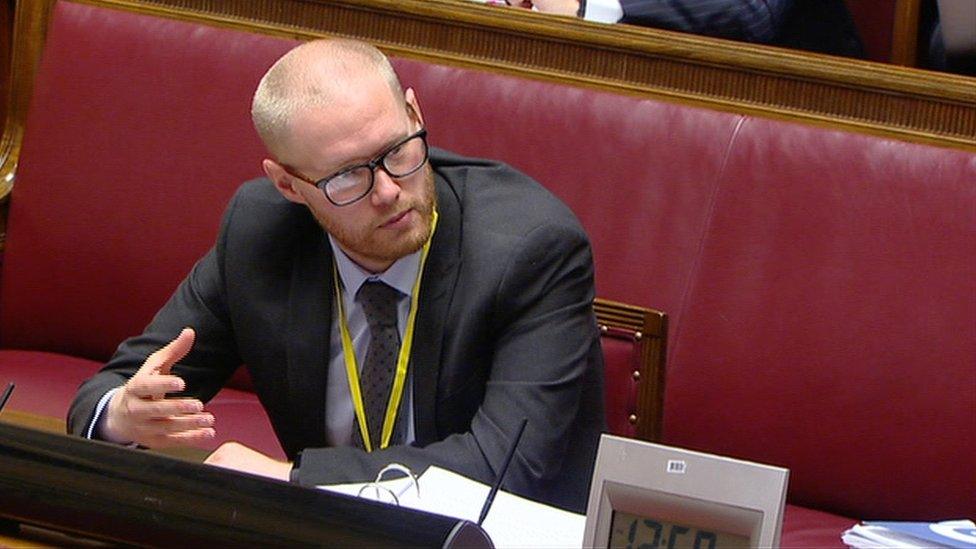'Opportunity missed' to close RHI loophole
- Published

Officials were advised to tighten the rules around multiple boilers on a single site, but the change was not made to the rules of the scheme
Officials running the RHI scheme missed an opportunity to shut down a loophole, an inquiry into the flawed green energy scheme has been told.
The loophole contributed significantly to the costs of the scheme.
The inquiry is investigating the circumstances surrounding the energy initiative, after costs spiralled.
The RHI scheme offered to subsidise the cost of its claimants' fuel - mostly wood pellets - for running their heating systems.
But the fuel cost far less than the subsidy they were receiving, effectively meaning users could earn more money by burning more fuel.
The most recent estimate put the projected overspend at £700m over 20 years if measures to control the cost are not implemented.
The scandal generated significant public concern and the fallout surrounding it led to the collapse of Northern Ireland's devolved administration and a major political crisis that exists to this day.

The RHI scheme subsidised the cost of claimants' fuel - mostly wood pellets - for running renewable heating systems
The inquiry, which is taking place at Stormont, was told officials were advised to tighten the rules around multiple boilers on a single site.
But the change was not made to the rules of the scheme.
Firms running multiple medium boilers instead of a couple of larger ones were able to earn much bigger subsidies.
The Office of Gas and Electricity Markets (OFGEM), which administered the RHI scheme for the enterprise department in Belfast, flagged up the issue in late 2011.
Giving evidence again to the inquiry on Friday, the civil servant who effectively ran RHI here, said they had delayed a decision on the advice.

Mr Hutchinson said had the scheme established systems peculiar to Northern Ireland
Peter Hutchinson said a similar warning had also been given to officials running the RHI scheme in Great Britain.
He said as Northern Ireland was a year behind the Great Britain scheme, it made sense to wait and see what was done there.
He told the inquiry that if Northern Ireland had made changes ahead of the the Department of Energy and Climate Change (DECC) it would have added to the administration costs of the scheme.
That was because OFGEM was administering both the Northern Ireland and Great Britain schemes.
"We were always trying to stay close to DECC, a year behind, but ultimately we never caught up," he said.
Panel member Dame Una O'Brien said it was a "pity" that other changes to the Great Britain scheme weren't copied.
These included an an emergency suspension mechanism and tiered tariffs.
- Published7 November 2017

- Published23 October 2019

- Published6 December 2017

- Published5 December 2017
